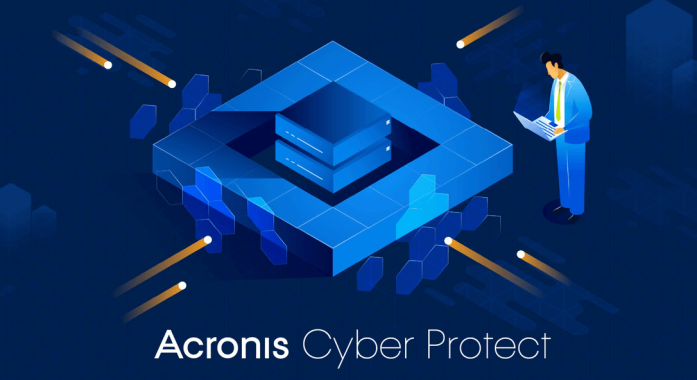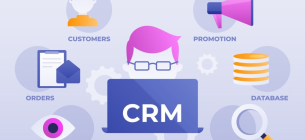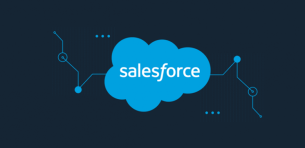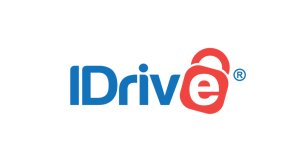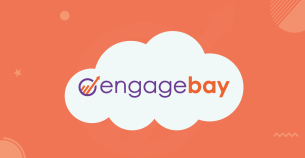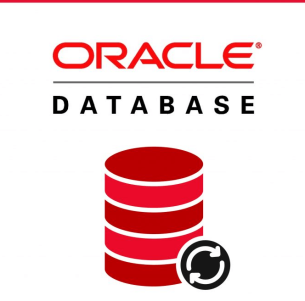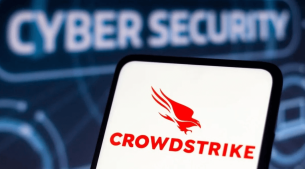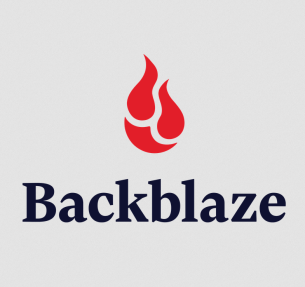In today's digital landscape, data is invaluable. For businesses and individuals alike, the risk of losing sensitive information is all too real. Acronis Cyber Backup emerges as a leading solution in the battle against data loss. Designed with comprehensive features, it promises not just protection but also swift recovery of your vital assets. But as with any tool claiming to safeguard your future, understanding the financial commitment is essential.
Before diving headfirst into any subscription, it's crucial to grasp what you're investing in. What exactly does Acronis offer? How do its pricing tiers align with your specific requirements? This article will break down the costs associated with Acronis Cyber Backup, exploring whether the benefits justify the price tag. Strap in as we navigate through key features, multiple pricing models, and insights that empower you to make an informed decision. Your journey towards securing your data starts here!
Understanding Acronis Cyber Backup Features
Acronis Cyber Backup stands out in the crowded cybersecurity market due to its robust set of features designed for comprehensive data protection and recovery. At the core, it offers advanced backup capabilities that cover not just files and folders but entire system images. This means that in the event of data loss—whether due to hardware failure, malware attacks, or accidental deletions—users can restore their systems to a previous state within minutes. The product's intuitive interface simplifies this process further, allowing even less tech-savvy users to perform backups with minimal hassle.
One of the unique features worth highlighting is Acronis’ AI-powered ransomware protection. By analyzing file behavior and identifying suspicious activity in real-time, it provides an additional layer of security by preemptively blocking potential threats before they can execute harmful actions. Furthermore, Acronis also lets users back up their data across multiple locations, including local storage devices and the cloud. This flexibility reduces reliance on any single recovery point, thus enhancing a business's resilience against various types of disasters.
In comparison to competing solutions like Veeam or Backupify, Acronis offers a more integrated experience by combining backup functionality with essential tools such as anti-malware protection and continuous replication. For instance, while many competitors provide basic file-level backups, Acronis goes above and beyond by facilitating instant recovery options not only for virtual machines but also hybrid environments featuring both on-premise and cloud infrastructures. This holistic approach ensures that businesses have access to all necessary resources without needing to juggle multiple service providers.
Ultimately, understanding these key features helps small business owners and IT professionals gauge how much value they are getting from their investment in Acronis Cyber Backup. As organizations increasingly realize the critical importance of securing their digital landscapes against growing cyber threats, recognizing what Acronis brings to the table compared with other options becomes essential in making an informed decision about which solution meets their needs best.
Pricing Tiers Explained
Acronis Cyber Backup offers a range of pricing plans tailored to fit various business needs. Their offerings include options for both individual users and organizations, with the goal of providing scalable solutions for data protection. The basic plan is crafted for small businesses, while more advanced tiers cater to larger enterprises that require robust features such as enhanced security protocols and comprehensive management tools. Understanding these tiers is essential for making an informed decision on which plan aligns best with your operational requirements.
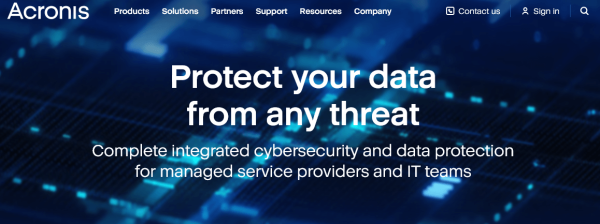
When choosing between monthly or annual subscriptions, it’s important to note that each option has its benefits. Monthly subscriptions provide flexibility, particularly beneficial for smaller businesses or those that anticipate changing needs over time. However, opting for an annual plan can offer significant savings—typically around 15-20% compared to paying monthly. For example, if your business operates on tight cash flow or has seasonal demand fluctuations, the ability to choose a monthly subscription allows for financial agility without locking you into a long-term commitment right away.
In addition to the base pricing, potential customers should be mindful of extra costs that may arise depending on their specific circumstances. Acronis offers numerous add-ons such as advanced ransomware protections and additional cloud storage capacity which could escalate total expenses unexpectedly if you're not prepared. Furthermore, while customer support is available to all subscribers, specific high-touch support services come at an additional cost. Understanding these nuances can help avoid unpleasant surprises down the road and allow businesses to budget effectively while incorporating top-notch cybersecurity measures into their operations.
Ultimately, evaluating the different pricing tiers against your organization’s unique needs can reveal considerable insights about Acronis’ value proposition in terms of cost versus functionality. Conducting a thorough analysis of what each plan includes will facilitate better decisions that align both operationally and financially with your business objectives as well as risk tolerance levels regarding data loss events.
Pricing for Different Business Sizes
When considering Acronis Cyber Backup, it's essential to recognize that the pricing is designed to cater to businesses of varying scales. Small businesses often have different needs and budgets compared to large enterprises, leading Acronis to offer tailored packages that align with specific requirements. For instance, a small business may prioritize cost-effective solutions with essential features like local backups and basic cloud storage, while larger organizations might need advanced functionalities such as granular recovery options and extensive support services. This distinction plays a critical role in how pricing tiers are structured.
Several factors influence the pricing based on a business's size and operational complexity. For small businesses, the focus tends to be on affordability without sacrificing core capabilities, which means opting for plans that cover fundamental backup functions and straightforward disaster recovery processes. In contrast, large enterprises typically require more robust solutions that can handle vast amounts of data, comprehensive compliance requirements, and higher levels of security—factors that naturally lead to increased costs. Customization options available in enterprise packages also contribute significantly to the overall price tag.
When assessing if these pricier plans are justifiable, it’s prudent for business owners to analyze their unique circumstances carefully. For example, an e-commerce platform handling sensitive customer information must prioritize a reliable backup solution even at a higher expense due to the potential fallout from data breaches or server failures. In such cases, investing in an all-encompassing Acronis plan could potentially save significant resources over time by preventing data loss incidents that would otherwise incur staggering recovery costs.
Ultimately, the decision boils down not just to immediate expenditures but also long-term strategic value. Smaller firms may maximize their limited budgets by utilizing entry-level plans until they experience growth requiring more sophisticated services. Conversely, larger companies must weigh their investment against risk management practices and regulatory demands where costlier solutions often translate into peace of mind. By understanding these dynamics within Acronis Cyber Backup’s offerings, organizations can make informed decisions aligning both their budgetary constraints and operational needs.
Free Trial and Initial Costs
Acronis understands that choosing a backup solution is a significant decision for any business, which is why they offer a free trial to allow potential users to explore their Cyber Backup services without any financial commitment. This trial typically lasts for 30 days and provides full access to the extensive features Acronis has to offer. During this period, users can evaluate the software’s ease of use, functionality, and overall effectiveness in protecting their data. The company encourages businesses to take advantage of this opportunity by fully testing various aspects of the service, from file recovery processes to cloud storage options.
While the free trial may seem like a straightforward venture into Acronis’ offerings, there are nuances worth noting. Users are often advised to examine system requirements and account limitations upfront since not all features might be available within the trial version. Some customers have reported unexpected prompts for credit card information during signup, leading them to worry about hidden costs or automatic billing once the trial ends. To avoid any surprises, it's wise for potential users to read through the terms closely before diving in.
Customer experiences during the trial phase provide valuable insights into both the service's strengths and weaknesses. Many users rave about how intuitive the user interface is and report seamless integration with existing systems, which significantly eases concerns about transitioning data. However, some feedback highlights challenges with support response times during critical moments when immediate assistance was needed. Consequently, while most find it an informative experience that showcases Acronis' capabilities well, others recommend using online resources and forums for quicker answers during those testing periods.
Ultimately, taking advantage of Acronis’ free trial can be quite beneficial for small businesses looking for cybersecurity solutions tailored to their needs. By investing time in exploring all available functionalities thoroughly and being aware of possible pitfalls such as unintentional sign-ups after the trial concludes, IT professionals and business owners can make informed decisions regarding whether this platform indeed fits their operational requirements.
Return on Investment (ROI) Considerations
When contemplating any business investment, especially in cybersecurity solutions like Acronis Cyber Backup, assessing the return on investment (ROI) is crucial. For many small businesses, the initial outlay might seem significant, but understanding the value derived from effective data protection can provide clarity on why these costs are justified. Beyond safeguarding critical data, Acronis Cyber Backup offers features that lead to operational efficiency and minimized downtime. In a case study involving a mid-sized retail company, their implementation of Acronis reduced system recovery times from several days to just hours after experiencing a ransomware attack, showcasing not only financial savings but also a substantial boost in customer trust and reputation.
Moreover, testimonials from various user accounts reflect that the long-term benefits of investing in Acronis Cyber Backup extend far beyond mere data retrieval. Business owners often share how peace of mind—knowing that their sensitive information is securely backed up—allows them to focus on growth initiatives rather than spending valuable resources managing potential threats. For instance, an IT consultant who used Acronis for his clients identified that the solution had led to cost reductions associated with lost productivity due to data loss incidents and avoided considerable fines related to compliance breaches sparked by inadequate backup measures.
The financial implications of implementing robust cybersecurity solutions such as Acronis cannot be overlooked. The initial expense transforms into long-term savings as businesses avoid costly disruptions linked to data breaches or system failures, which can run into thousands or even millions of dollars depending on the scale and nature of the incident. Additionally, many organizations report that enhanced security protocols have opened up new revenue streams—like offering additional services while building strong partnerships based on trustworthiness and reliability. As illustrated by another client breakout session at an industry conference, companies leveraging Acronis effectively positioned themselves as leaders in preventing cyber threats within their respective markets, making their premium pricing plans feel almost trivial compared to proved risks mitigated.
In summary, when weighing the ROI of Acronis Cyber Backup for small businesses against its costs, it becomes clear: investing in robust cybersecurity measures translates not only into financial preservation but also fosters environments conducive to future growth and stability. This dual benefit underscores why looking beyond immediate expenses toward consequential advantages is essential for informed decision-making in today’s fiercely competitive digital landscape.
Alternative Solutions Comparison
When it comes to cybersecurity and data backup solutions, Acronis Cyber Backup isn’t the only player in the game. Competitors like Veeam, Carbonite, and Backblaze offer similar services but bring their own unique strengths. Veeam, for instance, is particularly popular among larger enterprises due to its robust virtual machine backup capabilities and seamless compatibility with both cloud and on-premises setups. Carbonite is often favored by small businesses looking for easy-to-use solutions at competitive prices, while Backblaze has earned a reputation for its straightforward pricing model and unlimited storage offerings.
One key aspect that differentiates these alternatives from Acronis is their pricing structure. While Acronis provides comprehensive features bundled into different tiered plans, competitors may have hidden costs or simpler offerings that lead to additional fees as usage scales up. For instance, Backblaze operates on a flat rate per month for unlimited storage, which might seem economical initially but could become restrictive if extensive options or flexible management are essential for your organization. In contrast, Acronis' higher initial costs might be offset by its more diverse feature set tailored specifically toward complex environments requiring granular control over backups.
Another factor to consider when comparing these solutions is customer service quality and support responsiveness. Acronis shines with 24/7 customer support across various channels including live chat and phone assistance — an advantage critical during urgent recovery situations. Conversely, while companies like Carbonite offer decent support options during business hours, users often report longer wait times outside of peak hours. Prospective customers should weigh these service quality aspects alongside pricing when making their decision; after all, having reliable support can save not just money but also time and resources during crisis moments.
Ultimately, choosing between Acronis Cyber Backup and its competitors involves examining specific needs of your operation—whether it's advanced disaster recovery features you require or budget-minded simplicity without sacrificing essential functionalities. Each platform brings distinct advantages that cater differently based on user profiles ranging from small startups to expansive corporations; thus researching thoroughly will provide clarity whether investing in Acronis or pursuing an alternative route aligns best with your goals.
FAQs About Acronis Cyber Backup Pricing
When considering Acronis Cyber Backup, potential users often have questions regarding its pricing structure. One of the most common inquiries relates to how the pricing tiers are structured and what each plan includes. Acronis offers various subscription options based on the specific needs of businesses, from small startups to larger enterprises. Users can select plans that cover features such as advanced backup, disaster recovery solutions, and even cloud storage at different price points. Understanding these tiers not only allows organizations to choose a suitable package but also helps ensure they don't pay for features they won't use.
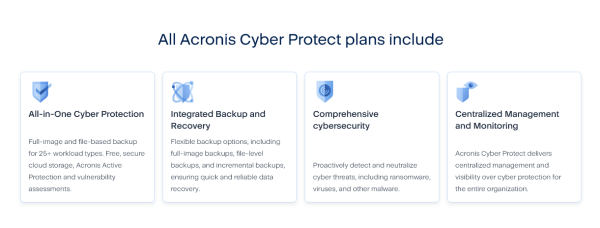
Another frequent question revolves around renewal rates after a subscription period ends. Clients may be concerned about unexpected increases in costs when their annual or monthly subscriptions auto-renew. It's essential to note that Acronis typically maintains consistent pricing upon renewal; however, promotional discounts for new subscribers might not apply to renewals. For example, if a small business initially subscribes at an introductory rate during a promotion, it’s wise to clarify whether similar deals exist upon renewal or if prices revert to standard rates.
Discounts and promotions can significantly affect overall expenses when subscribing to Acronis Cyber Backup. The company occasionally runs specials aimed at attracting new customers or rewarding existing ones who upgrade their plans. Inquiring about bulk discounts is also prudent—businesses needing multiple licenses can sometimes negotiate better rates per unit compared to single licenses. Engaging directly with the sales department or checking seasonal promotions could yield additional savings and incentives that aren’t immediately apparent on the website.
Lastly, prospective users should pay close attention during trial periods regarding potential hidden costs associated with specific features that may require supplementary payments later on. Customers often find value in testing out services before full commitment; thus, taking advantage of trial periods will give insights into both usability and cost-effectiveness without making long-term financial commitments right away. By addressing these FAQs head-on, individuals considering Acronis Cyber Backup can make more informed decisions that align closely with their organizational needs and budget constraints.
Final Verdict: Acronis Cyber Backup - Worth the Investment?
In weighing the benefits of Acronis Cyber Backup against its costs, the decision ultimately hinges on your specific needs. For small businesses or IT professionals serious about data protection, this tool offers robust features and flexibility that can ensure peace of mind. The investment may seem significant at first glance; however, consider it in terms of potential losses from data breaches or disasters. The cost can quickly pale in comparison to the value gained from safeguarding critical information.
If you're an individual user or a small business owner who prioritizes cybersecurity but operates on a limited budget, Acronis could be worth exploring further—especially with options for tailored packages and free trials available. Larger enterprises might also find their comprehensive offerings particularly suitable. Evaluate your own requirements carefully and use Acronis’s trial to gain firsthand experience. In the end, making an informed choice will protect not just your data but also your bottom line.
